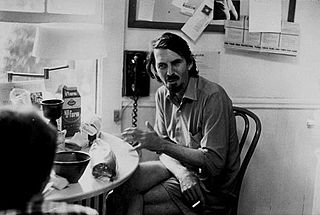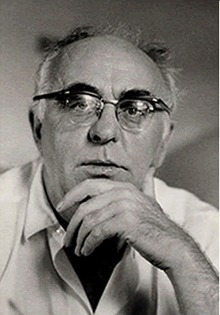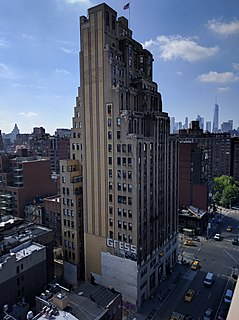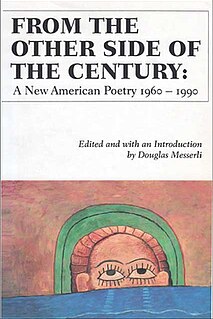Related Research Articles

Robert White Creeley was an American poet and author of more than sixty books. He is usually associated with the Black Mountain poets, though his verse aesthetic diverged from that school. He was close with Charles Olson, Robert Duncan, Allen Ginsberg, John Wieners and Ed Dorn. He served as the Samuel P. Capen Professor of Poetry and the Humanities at State University of New York at Buffalo. In 1991, he joined colleagues Susan Howe, Charles Bernstein, Raymond Federman, Robert Bertholf, and Dennis Tedlock in founding the Poetics Program at Buffalo. Creeley lived in Waldoboro, Buffalo, and Providence, where he taught at Brown University. He was a recipient of the Lannan Foundation Lifetime Achievement Award.

Louis Zukofsky was an American poet. He was the primary instigator and theorist of the so-called "Objectivist" poets, a short lived collective of poets who after several decades of obscurity would reemerge around 1960 and become a significant influence on subsequent generations of poets in America and abroad.
The Objectivist poets were a loose-knit group of second-generation Modernists who emerged in the 1930s. They were mainly American and were influenced by, among others, Ezra Pound and William Carlos Williams. The basic tenets of objectivist poetics as defined by Louis Zukofsky were to treat the poem as an object, and to emphasize sincerity, intelligence, and the poet's ability to look clearly at the world. While the name of the group is similar to Ayn Rand's school of philosophy, the two movements are not affiliated.
Lorine Faith Niedecker was an American poet. Niedecker's poetry is known for its spareness, its focus on the natural landscapes of Wisconsin and the Upper Midwest, its philosophical materialism, its mise-en-page experimentation, and its surrealism. She is regarded as a major figure in the history of American regional poetry, the Objectivist poetic movement, and the mid-20th-century American poetic avant-garde.

Charles Olson was a second generation modern American poet who was a link between earlier figures such as Ezra Pound and William Carlos Williams and the New American poets, which includes the New York School, the Black Mountain School, the Beat poets, and the San Francisco Renaissance. Consequently, many postmodern groups, such as the poets of the language school, include Olson as a primary and precedent figure. He described himself not so much as a poet or writer but as "an archeologist of morning."
The Black Mountain poets, sometimes called projectivist poets, were a group of mid-20th-century American avant-garde or postmodern poets centered on Black Mountain College in North Carolina.
Cid (Sidney) Corman was an American poet, translator and editor, most notably of Origin, who was a key figure in the history of American poetry in the second half of the 20th century.

Paul Blackburn was an American poet. He influenced contemporary literature through his poetry, translations and the encouragement and support he offered to fellow poets.

The New American Poetry 1945–1960 is a poetry anthology edited by Donald Allen and published in 1960. It aimed to pick out the "third generation" of American modernist poets, and included quite a number of poems fresh from the little magazines of the late 1950s. In the longer term it attained a classic status, with critical approval and continuing sales. It was reprinted in 1999. As of 2022, Edward Field and Gary Snyder are the only contributors still living.

New Directions Publishing Corp. is an independent book publishing company that was founded in 1936 by James Laughlin and incorporated in 1964. Its offices are located at 80 Eighth Avenue in New York City.

Joel Lester Oppenheimer was an American poet associated with both the Black Mountain poets and the New York School. He was the first director of the St. Marks Poetry Project (1966–68). Though a poet, Oppenheimer was perhaps better known for his columns in the Village Voice from 1969 to 1984.
Robert J. Bertholf was an author and professor at Kent State University, and the University at Buffalo. He was the Charles D. Abbott Scholar-In-Residence and former curator of The Poetry Collection at Buffalo.

Jonathan Williams was an American poet, publisher, essayist, and photographer. He is known as the founder of The Jargon Society, which has published poetry, experimental fiction, photography, and folk art since 1951.

From the Other Side of the Century: A New American Poetry, 1960–1990 is a poetry anthology published in 1994. It was edited by American poet and publisher Douglas Messerli – under his own imprint Sun & Moon Press – and includes poets from both the U.S. and Canada.
American Poetry Since 1950: Innovators and Outsiders is a 1993 poetry anthology edited by Eliot Weinberger. First published by Marsilio Publishers, it joined two other collections which appeared at that time: From the Other Side of the Century: A New American Poetry, 1960-1990 and Postmodern American Poetry, a 1994 poetry anthology edited by Paul Hoover. These three anthologies were perhaps seeking to be for their time what Donald Allen's anthology, The New American Poetry, was for the 1960s.
Nationality words link to articles with information on the nation's poetry or literature.
Origin was an American poetry magazine that was founded in 1951 by Cid Corman. The magazine provided an early platform for the work of Charles Olson, Robert Creeley, Gary Snyder, Theodore Enslin and other important, ground-breaking poets, who collectively created an alternative to academic poetry.
Founded by printer-poet Dave Haselwood in 1958, the Auerhahn Press published many key poets of the San Francisco Renaissance.
Paul C. Metcalf was an American writer. He wrote in verse and prose. Devoted admirers included Robert Creeley, William Gass, Wendell Berry, Guy Davenport, Howard Zinn, and Bruce Olds. His books include Will West (1956), Genoa (1965), Patagoni (1971), Apalache (1976), The Middle Passage (1976), Zip Odes (1979), and U.S. Dept. of the Interior (1980). He was the great-grandson of one of his major literary influences, Herman Melville.
Richard Lowell Blevins is a poet writing in the tradition of Ezra Pound, H.D., and Robert Duncan, an editor of the Charles Olson-Robert Creeley correspondence, and an award-winning teacher. He was born in Wadsworth, Ohio, in 1950. His undergraduate career was halved by the May 4, 1970, Kent State shootings. He was declared a conscientious objector during the Vietnam War. At Kent State, he studied poetry and the imagination with Duncan and literature of the American West with Edward Dorn. But he has often said that Cleveland book dealer James Lowell was his most formative early influence. He holds degrees from Kent State University, the University of Oregon, and the University of Pittsburgh (Ph.D., English literature, 1985; dissertation on the western novels of Will Henry. He has taught literature and poetry writing at the University of Pittsburgh at Greensburg since 1978, also serving as Humanities Chair for nine years. He is a winner of a Chancellor’s Award, in 1999, the university’s highest recognition for teaching. He previously taught at the University of Akron and Kent State.
References
- ↑ "The Jargon Society". jargonbooks.com. Archived from the original on 2018-10-10. Retrieved 2019-04-25.
- ↑ "The Short and Brilliant Life of Ernest Matthew Mickler". THE BITTER SOUTHERNER. Archived from the original on 2019-08-02. Retrieved 2019-08-02.
- ↑ "Jargon Society - First Edition Identification and Publisher Information". www.biblio.com. Archived from the original on 2019-04-25. Retrieved 2019-04-25.
- ↑ "The Jargon Society". jargonbooks.com. Archived from the original on 2018-10-10. Retrieved 2019-08-02.
- ↑ "The Black Mountain Muse: Foreword to The Black Mountain College Anthology of Poetry by Joseph Bathanti". BMCS. Archived from the original on 2019-08-02. Retrieved 2019-08-02.
- ↑ "NOTES ON CONTRIBUTORS". Conjunctions (4): 224–226. 1983. ISSN 0278-2324. JSTOR 24514792.